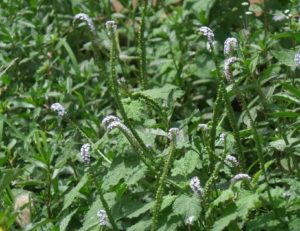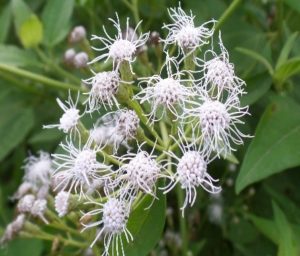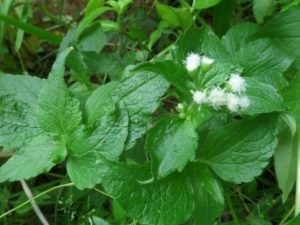By: Ewoenam Kpodo | Voltaonlinegh.com |
A lecturer at the Department of Food Science and Technology, Ho Technical University (HTU), Dr. Emmanuel Letsyo has advised beekeepers to restrict the growth of pyrrolizidine alkaloid (PA) containing plants around their beehives to avoid the potential risk of contaminating honey samples.
The PAs produced by plants as a defense mechanism against insect herbivores are natural toxins that can be damaging to the liver when consumed.
Dr. Letsyo whose area of research includes the determination of plant contaminant in foodstuffs and herbal products identified the four common PA plants in Ghana and called on beekeepers around the rain forest and middle belt zones of the country where they are mostly found to clear them away to avoid contamination.
“The PA plants are chromolaena odorata which is commonly known as ‘acheampong’, ageratum conyzoides, heliotropium indicum and crotalaria retusa. These are the most common plants in Ghana here and they contaminate honey sample so they should restrict these plants from growing around the beehives because when they have these plants around, they will have the bees collecting the pollen and nectar from these plants and using them in their honey production.”

He encouraged rather, the growth of medicinal plants around the beehives so that when the bees collect nectar from them, they transfer the medicinal properties into the honey to benefit the health of consumers.

Dr. Letsyo disclosed this on Wednesday, September 19, 2018 in an interview after his presentation on Plant Toxins in Honey: A Potential Health Risk at the ongoing 4th National Food Hygiene, Safety and Sanitation Conference at HTU.

The 2-day conference themed: “Food Borne Illness and Sanitation in the Era of Sustainable Development Goals (SDGs); The Implication for a Healthy Workforce” had various speakers giving keynote speeches on the first day of the conference.

There were officials from the Volta Regional Food and Drugs Authority (FDA), Gorden Akurugu and Elorm Yao Dordor who jointly spoke on Food Safety, Food Hygiene and Food Borne Illness. They decried dangers of food borne diseases in the country and elsewhere and reinforced the need for government, the food industry, the academia, and individuals to do more to ensure safety of food as a preventive measure.
Dr. Frederick Vuvor of University of Ghana, School of Biological Sciences in his presentation on Environmental Sanitation and Disease Control, entreated organisations and individuals to keep food and their environment clean to prevent food contamination and minimise the spread of diseases in the wake of outbreaks.
Mr. Sulemana from the Regional office of the Ghana Water Company Limited (GWCL) also had his turn to educate participants on the role of the Company in managing drinking water in ensuring public health.
Source: www.voltaonlinegh.com




